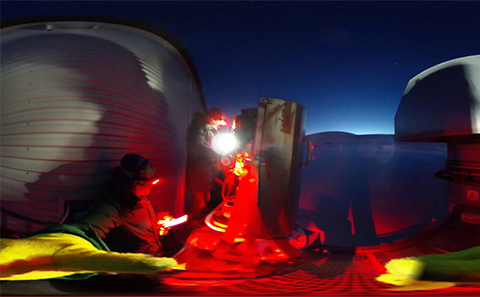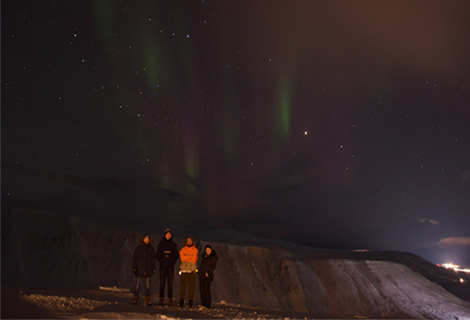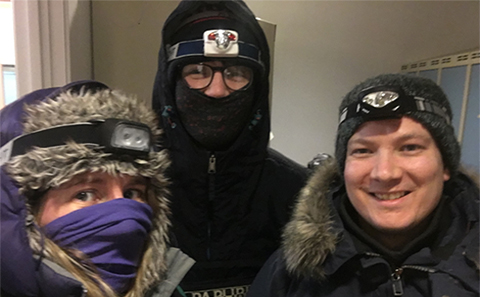
View our project blog
Keep up to date with our progress or enquire about the online talk we can offer on our aurora expedition.
Studying aurora can help us to predict and prepare for natural disasters such as solar storms. These storms are powerful enough to cause satellites to malfunction and electrical power-grids to fail, destroying our global power and communication systems.
What are Aurora?
Aurora form when charged particles from space collide with gas particles in the Earth’s atmosphere. Aurora are commonly referred to as The Northern Lights and The Southern Lights; sky-spanning light shows seen in bands around the north and south poles of the Earth.
Your identifications help us to study the occurrence, frequency and favourable conditions for different types of aurora to occur. From this, we can build a database of different structures present at different times.
Unusual aurora flagged in the ‘talk’ forum highlight interesting events to us.
We compare this data with other sensory data recorded at the same time to better understand why these structures are created.
Without your help, we wouldn’t be able to do this type of research.

We are a team of space scientists from the University of Southampton on a field work campaign on Svalbard to study and measure the aurora borealis, known as the Northern Lights.

Keep up to date with our progress or enquire about the online talk we can offer on our aurora expedition.

Learn more about the Aurora Zoo project team.